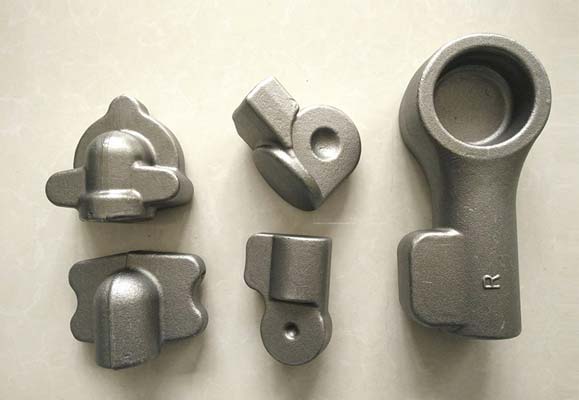- Contact Innally, Let you purchase forgings in China more favorable prices, products more assured!
- Hotline:+(86)15038323776 Email:innally@innally.com
What are the classifications of construction machinery forgings?
- Category: Construction machinery forgings, Stainless steel forging
- |
- Date: 10/10/2023
In short, construction machinery forgings can be divided into different types according to different classification methods. Understanding the different types of forgings and their characteristics and application areas can help us better understand and select forgings that are suitable for specific construction machinery and equipment.
Product Details
Construction machinery forging is a kind of mechanical parts made by forging process, which is widely used in various construction machinery. According to different classification methods, construction machinery forgings can be divided into different types.
- Classification by use
Structural parts Structural parts are forgings that constitute the main structure of construction machinery, such as excavator buckets, loader crab claws, crane boom, etc. These forgings play an important role in bearing load, transmitting force and movement in construction machinery, so their strength, stiffness and stability are required to be high.
Accessories Accessories are forgings used in construction machinery attachment systems, such as excavator bucket teeth, loader rims, crane pulleys, etc. These forgings have an important impact on the working efficiency and working quality of construction machinery, so their wear resistance, fatigue resistance and reliability are required.
Hydraulic components Hydraulic components refer to forgings used in construction machinery hydraulic systems, such as hydraulic cylinders, hydraulic motors, hydraulic pumps, etc. These forgings play a key role in the power transmission and motion control of construction machinery, so their sealing, high pressure resistance and shock resistance are required.

Second, according to manufacturing process classification
Free forging Free forging refers to the forging made by the free forging process. This forging process uses impact forces and pressure to deform metal materials, resulting in forgings of the desired shape and size. Free forgings are usually used to produce small batch, large or complex shape of construction machinery forgings.
Die forging refers to the forging made by the die forging process. This forging process uses dies and presses to deform metal materials to obtain forgings of the desired shape and size. Die forging is usually used to produce high-volume, small and medium-sized or simple shape of construction machinery forgings.
Special forging
Special forging parts refer to forgings made by special processes, such as electroslag remelting forging, powder metallurgy forging, hot isostatic pressing, etc. These special processes can improve the purity, density and mechanical properties of metal materials, so as to obtain high strength, high toughness, high temperature resistance of construction machinery forgings.
- Classification by material
Carbon steel forging
Carbon steel is a common metal material with high strength and wear resistance. Carbon steel forgings are often used to manufacture key structural parts and accessories of various construction machinery, such as excavator buckets, loader crab claws, crane booms, etc.
Stainless steel forging
Stainless steel is a kind of metal material with high corrosion resistance and high strength, which is usually used to manufacture hydraulic components and seals of various construction machinery. Stainless steel forgings can resist the effects of various chemicals and high temperatures, so they have a wide range of applications in construction machinery.
Alloy steel forgings
Alloy steel is a kind of carbon steel with alloying elements, which has the characteristics of high strength, high toughness, high wear resistance and high temperature adaptability. Alloy steel forgings are commonly used to manufacture key structural parts and accessories of various construction machinery, such as excavator buckets, loader crab claws, crane booms, etc.
Aluminium alloy forging
Aluminum alloy is a lightweight, high strength, corrosion resistant metal material, usually used to manufacture a variety of construction machinery lightweight structural parts and accessories, such as excavator buckets, loader rims, crane pulleys, etc. Aluminum alloy forgings can improve the fuel efficiency and operational performance of mechanical equipment.
In short, construction machinery forgings can be divided into different types according to different classification methods. Understanding the different types of forgings and their characteristics and application areas can help us better understand and select forgings that are suitable for specific construction machinery and equipment.
nannan
INNALLY mainly provides you with various types of cast and forged parts products. Welcome your inquiries! innally@innally.com
Related Products
Search
Forging center
- Steel forgings
- Aluminium alloy forging
- Titanium alloy forging
- Stainless steel forging
- Copper forging
- Automotive forgings
- Locomotive forging
- Bicycle forgings
- Motorcycle forging
- Rigging and fasteners
- Bearing forging
- Electric power fittings
- Marine forging
- Mechanical forgings for metalworking
- Mining machinery forgings
- Marine engineering forgings
- Construction machinery forgings
Popular product

© 2025. All Rights Reserved.






